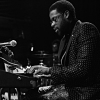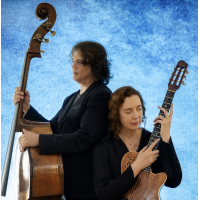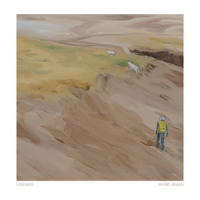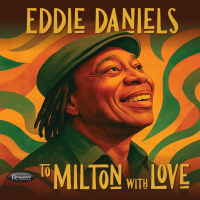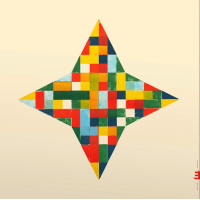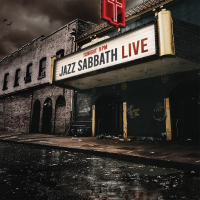Home » Jazz Articles » Album Review » Phil Ranelin & Wendell Harrison: Jazz Is Dead 16
Phil Ranelin & Wendell Harrison: Jazz Is Dead 16
Happily, Phil Ranelin and Wendell Harrison's Jazz Is Dead 16 is a winner. But the memory of the flops which preceded it sticks in the craw and it will take a good few more successes to erase it.
The Janus-faced character of Jazz Is Dead lies in Younge and Muhammad's career backgrounds. These are in hip hop rather than jazz and the duo first intersected as coproducers of Kendrick Lamar's "Track 06" for Untitled Unmastered (Top Dawg) in 2016. The upside is an energising take on beats and ostinatos and a creative use of new recording technology. The downside is mid-level (at best) instrumentalism and an underappreciation of the importance to jazz of improvisation. Younge, Muhammad and drummer Greg Paul (who was on board for the first Jazz Is Dead album) form the core of the studio band for most albums, with the star guests too often relegated to brief cameo roles.
Anyway, enough with the generalisms. Time to address Jazz Is Dead 16 in particular....
Tenor saxophonist Harrison, also heard here on bass clarinet, and trombonist Ranelin were in 1971 the founders of the Detroit self-help collective Tribe Records, a platform for local musicians to both express their creativity and to have control over the marketing and distribution of their records. Tribe, which also published a magazine and was engaged in local education programmes, was an approximate cross between two contemporaneous organizations, New York's Strata-East label and Chicago's Association for the Advancement of Creative Musicians. Tribe disbanded in 1977, a victim of wider economic pressures, but Harrison and Ranelin have ever since remained in sync with each other and with Tribe's founding principles.
Although Tribe musicians' core artistic heroes were jazz composers such as John Coltrane, Archie Shepp and Ornette Coleman, many of them were regularly employed as session musicians for Detroit's Motown Records, and funk was an important substratum of their primarily jazz Tribe releases. It still is in 2023 and it sits well with Younge and Muhammad's hip hop proclivities.
Jazz Is Dead 16 is nuanced, imaginative and fresh—bend an ear to the opening track, "Genesis," on the YouTube clip below—and, while the average track duration of four-and-a-half minutes rarely allows either of the leaders to stretch out and tell a story, if the album leads newbies towards the glories of Harrison and Ranelin's Tribe and post-Tribe catalogues it will have done a useful job.
Track Listing
Genesis; Open Eye; Running With The Tribe; Fire In Detroit; Ursa Major; Metropolitan Blues; Black Census.
Personnel
Phil Ranelin
tromboneWendell Harrison
saxophone, tenorAdrian Younge
keyboardsAli Shaheed Muhammad
bassGreg Paul
drumsAdditional Instrumentation
Phil Ranelin: trombone; Wendell Harrison: tenor saxophone (1, 7), bass clarinet (3-6); Adrian Younge: Fender Rhodes piano, electric guitars, marimba, Clavinet, monophonic synthesizers, Mellotron, Hammond B3 organ, electric sitar, alto and sopranino saxophone, flutes, percussion; Ali Shaheed Muhammad: electric bass guitar, congas; Greg Paul: drums.
Album information
Title: Jazz Is Dead 16 | Year Released: 2023 | Record Label: Jazz Is Dead
Tags
PREVIOUS / NEXT
Support All About Jazz
 All About Jazz has been a pillar of jazz since 1995, championing it as an art form and, more importantly, supporting the musicians who make it. Our enduring commitment has made "AAJ" one of the most culturally important websites of its kind, read by hundreds of thousands of fans, musicians and industry figures every month.
All About Jazz has been a pillar of jazz since 1995, championing it as an art form and, more importantly, supporting the musicians who make it. Our enduring commitment has made "AAJ" one of the most culturally important websites of its kind, read by hundreds of thousands of fans, musicians and industry figures every month.





